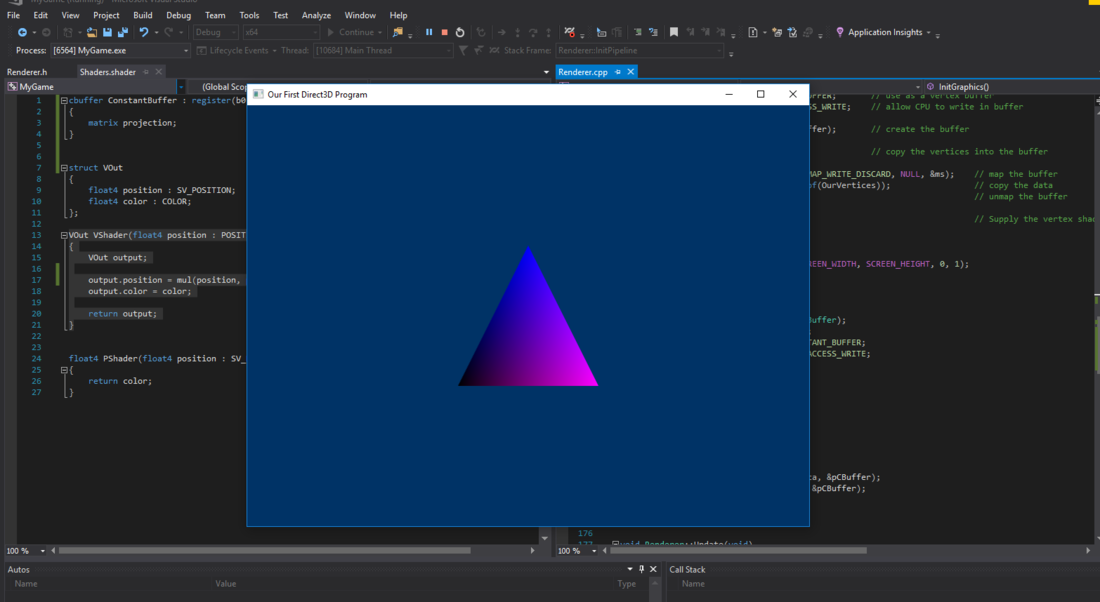Hi all, I ended up figuring out how to accomplish this!
So, I had to set a constant buffer, I kept everything very simple.. This is my C++ representation of my Shader cbuffer
struct ConstantBuffer
{
D3DXMATRIX projection;
};And here is my pointer to the constant buffer, as well as the matrix I will create using directx:
ID3D11Buffer *pCBuffer; // the constant buffer
D3DXMATRIX orthoMatrix;
Here is the shader cbuffer:
cbuffer ConstantBuffer : register(b0)
{
matrix projection;
}
Now, I had to map this stuff, this tutorial here was extremely helpful: https://docs.microsoft.com/en-us/windows/desktop/direct3d11/overviews-direct3d-11-resources-buffers-constant-how-to
I was able to translate their example into my own code:
ConstantBuffer cbuffer;
D3DXMatrixOrthoLH(&orthoMatrix, SCREEN_WIDTH, SCREEN_HEIGHT, 0, 1);
cbuffer.projection = orthoMatrix;
// Fill in a buffer description.
D3D11_BUFFER_DESC cbDesc;
cbDesc.ByteWidth = sizeof(ConstantBuffer);
cbDesc.Usage = D3D11_USAGE_DYNAMIC;
cbDesc.BindFlags = D3D11_BIND_CONSTANT_BUFFER;
cbDesc.CPUAccessFlags = D3D11_CPU_ACCESS_WRITE;
cbDesc.MiscFlags = 0;
cbDesc.StructureByteStride = 0;
// Fill in the subresource data.
D3D11_SUBRESOURCE_DATA InitData;
InitData.pSysMem = &cbuffer;
InitData.SysMemPitch = 0;
InitData.SysMemSlicePitch = 0;
dev->CreateBuffer(&cbDesc, &InitData, &pCBuffer);
devcon->VSSetConstantBuffers(0, 1, &pCBuffer);Then, my updated shader code to apply the transformation:
VOut VShader(float4 position : POSITION, float4 color : COLOR)
{
VOut output;
output.position = mul(position, projection);
output.color = color;
return output;
}
Now, instead of using relative coordinates for my triangle vertices, I use some pixel coordinates:
// create a triangle using the VERTEX struct
Vertex OurVertices[] =
{
{ D3DXVECTOR2(0, 100), D3DXCOLOR(1.0f, 0.0f, 0.0f, 1.0f) },
{ D3DXVECTOR2(100, -100), D3DXCOLOR(0.0f, 1.0f, 0.0f, 1.0f) },
{ D3DXVECTOR2(-100, -100), D3DXCOLOR(0.0f, 0.0f, 1.0f, 1.0f) }
};








